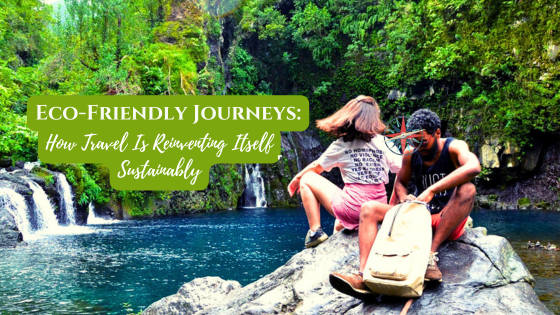
The growing global discourse on climate change and environmental stewardship has put the tourism sector under intense scrutiny to conduct its activities in a more environmentally friendly manner. Tourism, being one of the most significant sources of carbon emissions, unsustainable resource use, and cultural degradation, has gradually seen greenwashing activities on its behalf. But is the change authentic, or is it just cosmetic? Here are five key insights that show how the tourism industry is heading toward sustainability:
Sustainable PR Shapes Traveler Behavior
Public relations promotes sustainability and travel decisions. Brands carve a new identity for responsible travelling by creating stories around environmentally friendly experiences. Campaigns highlighting low-impact activities and the engagement of local communities in partnerships and regenerative tourism appeal to the conscientious traveller. Influencers and media help carry these messages, encouraging travellers to choose greener options without compromising on comfort or adventure. More importantly, sustainable PR seeks to promote responsible travel as something aspirational rather than restrictive.
Eco-Conscious Wellness Travel Is on the Rise
Once associated with high-end spas and exotic destinations, wellness travel is undergoing a green makeover. Travellers seeking physical and mental rejuvenation are now opting for eco-friendly destinations where organic food, natural remedies, and environmental harmony take centre stage. Whether it’s forest bathing in Scandinavian forests or off-grid yoga breaks in Central America, wellness travel strives to minimize its ecological footprint while enhancing the stress-relieving experience. The growth of this segment represents a shift from wanton indulgence to a purposeful activity where sustainability matters as much as holistic well-being.
Green Certifications Are Becoming the Norm
Sustainability certifications are no longer exclusive to niche segments. What was once a privilege of high-end eco-resorts has now become mainstream, influencing choices in accommodation, transportation, and tour operations. EarthCheck, B Corp, and the Global Sustainable Tourism Council are among the certifications that have emerged as benchmarks for environmental performance. Hotels and resorts are now expected to conserve water, prevent energy waste, and implement waste management systems, not just because it is the right thing to do, but because travellers are demanding it. Many travel companies now hire an experienced B Corp consultant to navigate certification processes and enhance their operational transparency. This allows them to gain credibility and align with international standards.
Local Economies Are Benefiting from Community-Based Tourism
Community-based tourism has gained considerable momentum recently, centring the local voice in the tourist experience. Instead of being fed to giant international chains, these sustainable travellers partner with indigenous communities and local entrepreneurs, thereby aiding cultural preservation, economic empowerment, and environmental conservation. Activities such as farm stays, guided nature walks, and cultural immersion programs generate revenue while maintaining integrity and helping to disperse tourism revenues, creating authentic experiences that contribute to a resilient local economy.
Innovation in Transportation Is Driving Carbon Reduction
Tourism generates a significant environmental footprint, and transportation is indeed one of the largest contributors to this footprint. Airlines are investing in sustainable aviation fuel, while aircraft manufacturers are designing aircraft with increased fuel efficiency. At the same time, rail networks are being reinstated where they were underused in the past to provide the traveller with a low-emission alternative to flying. Tour operators are operating their tours with electric buses and incorporating carbon offsets into their package prices. The doom of long-haul flying remains in the air, but one must witness slow yet steady progress in the transport infrastructure and technology to make a difference.
The travel industry is slowly yet steadily shifting its perception from a model of mass consumption to one that prioritizes sustainability, morality, and long-term viability. The phase of transition is still underway; while problems persist, these five insights suggest that the trade is not only responding to environmental demands, but also beginning to incorporate those environmental demands into its own identity.
Peter is an LGBT travel and lifestyle writer at Queer Voices magazine, living between Australia and Europe. Besides writing, he also worked as a freelance fashion stylist for many magazines. A true craft beer and soy latte aficionado, he loves spending his days at the beach and visiting second-hand stores on a daily basis. Follow Peter on Twitter below for more tips.
Източник за тази статия
Наши спонсори са:
Български трактори на добри цени при изключително качество






